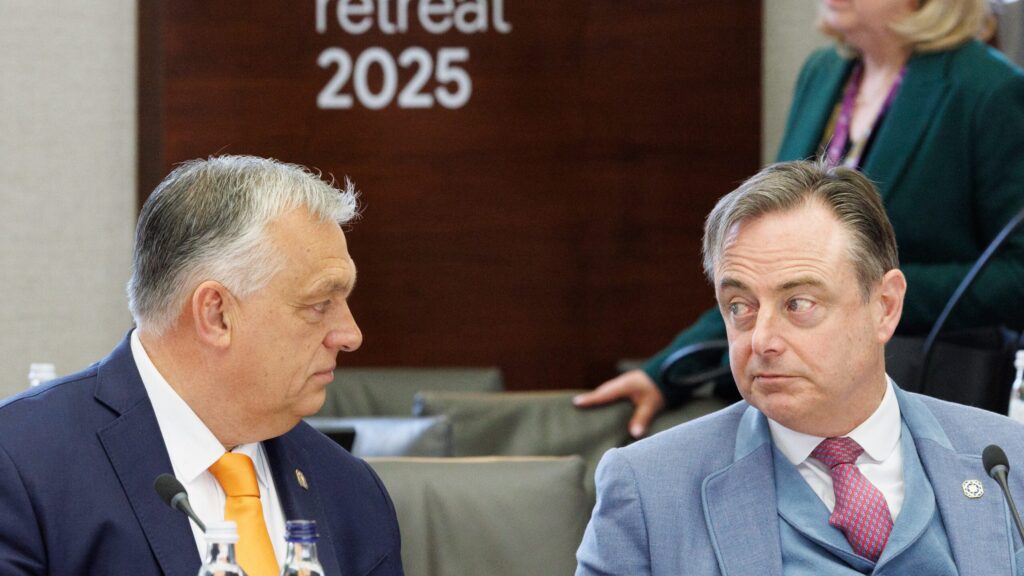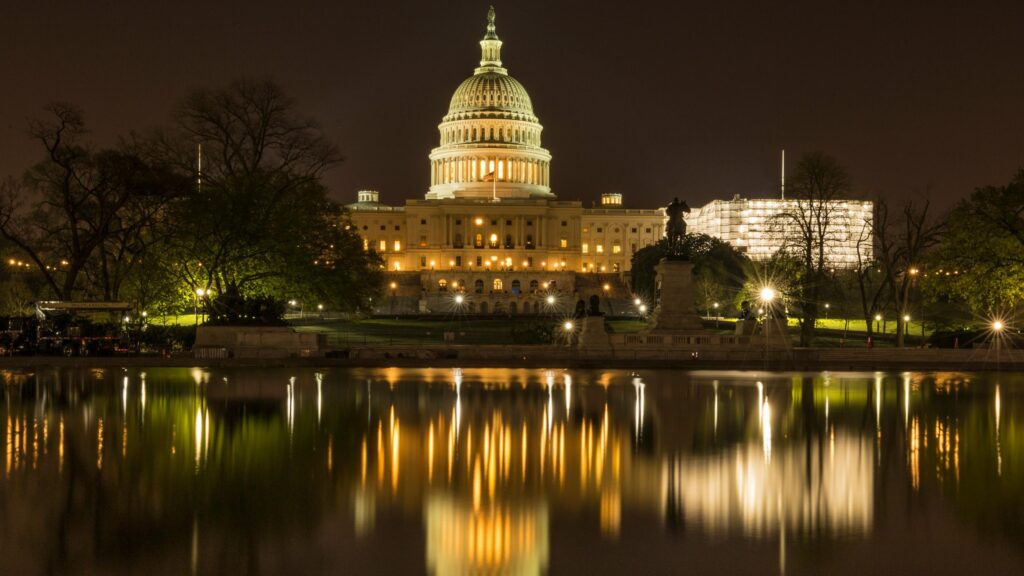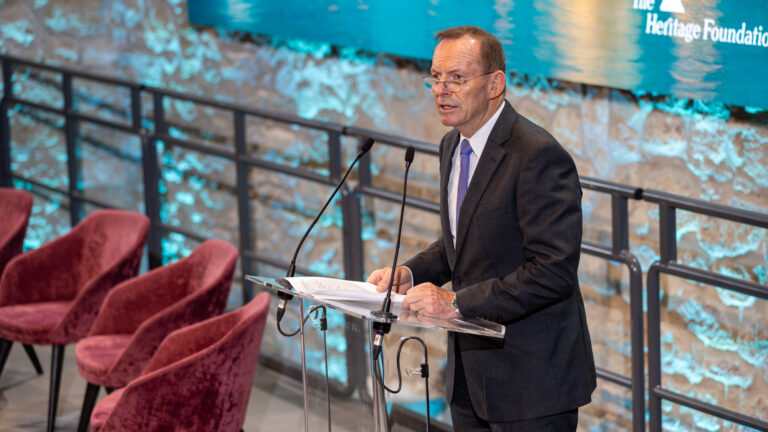‘Donald Trump recognized Viktor Orbán as a genuine conservative who puts the interests of his own country above any globalist principle. There is the major similarity between them; they are two leaders who genuinely love their country’, Troup Hemenway, the senior consultant of the Heritage Foundation and one of the leaders of Project 2025, who is currently involved in the preparation of the next conservative government, said in an interview with Hungarian Conservative.
***
What are the main differences between Republicans and Democrats’ understanding of what kind of bureaucratic background an effective public administration should have?
This is primarily based on ideological differences, and you can clearly separate how conservatives and progressives, Republicans and Democrats think about the issue. It’s worth comparing the current Biden administration to the previous Trump administration, and there are stark differences and contrasts between how things work now and how they worked back then. It is easy to point to the areas where the Biden administration is most different, I would highlight five of them: the opening of our borders, as a result of which the United States is currently facing the worst illegal immigration crisis in its history. We’re looking towards the nearly seven million illegal immigrants that have come in the past three years. It is also important to mention the devastation of the economy and the crippling of energy production, causing Americans to experience rapid inflation. American people truly are suffering as a result of those policies. There is also the weakening of the American military, where they are primarily focused on social experimentation and engineering, at the expense of readiness and the ability to project strength abroad—the Democrats focused on implementing their ideology instead. Fifth, the weaponization of government: conferring the Department of Justice, the FBI, and some of the intelligence community into a functional role of surveillance and law enforcement against our own civilians is a remarkable and distinct break from constitutional order. In contrast, we as conservatives want the government to work for the people, not against them.
During your lecture at the Danube Institute, you mentioned that bureaucracy is usually a hostile territory controlled by Democrats. What difficulties does this cause in practice?
This can almost be seen as a kind of compliment regarding the fifth point of my previous answer. Some of the agencies that were created underneath former President Lyndon B. Johnson, like Great Society, or back further underneath of Franklin D. Roosevelt, as a kind of correctness for the damage caused by the Great Depression, ultimately ended up expanding government and that growth hasn’t curtailed. But some agencies are just naturally more concerned about leftist priorities. And we had liberal presidents that were creating those, so therefore, those institutions were going to be staffed by more Democrats and progressives. Some recent analyses showed that about two thirds of the career senior executive service are democrats. The difficulty when a president is actually governing is that many people have been hired for more progressive practices, not for traditional government functions like what exists at the State Department, the Defense Department, or the Treasury Department. And those are the areas where liberals and conservatives really split. Ultimately, you can have more ideological bureaucrats that slow the machine down when a conservative is trying to implement policy.
What is the mission of the 2025 Presidential Transition Project?
The main goal is to enable the next conservative president, and to deconstruct the administrative state and return power to the people. And we can do that by giving policy recommendations that would abide to a conservative America First Administration, as well as putting together a slate of candidates that could effectively implement his agenda to get back to office. It’s that simple. We are trying to make sure that we give another conservative president the tools they need to fully control the executive branch.
As an insider, how did you experience Donald Trump’s previous term?
I was just 23 years old when I started working in the White House and had spent three years at the Defense Department prior to that. For the most part, I was caught up in the day to day and didn’t pay much mind to how extraordinary everything we were doing was. Looking back, it was just plain a great experience.
How does someone get into the White House at the age of 23?
Hard work. There is a criticism that Washington is a not meritocracy, and there’s some truth to that, but if you’re there and you demonstrate merit and ability, you can advance pretty quickly. That was especially true for the Trump administration. Things were always moving, and fast, and that presented opportunities. There’s a saying where there’s chaos, there’s opportunity. Of course, there was attrition in the administration too. Most people tend to clock out after two years or so. I decided to stay all four in order to score as many wins for the president as I could have. Many others made that same decision. As a result, there was kind of a natural sequence where folks moved in to replace those outgoing.
How do you imagine the potential future conservative administration of the United States?
Hopefully a full reversal of the current administration, and I also trust that many of Trump’s policies will be re-implemented.
What is the American public mood like? What kind of campaign period do you think the United States is facing?
The public mood has been turbulent since 2021. From a campaign perspective, it’s astonishing the current administration is actually trying to prosecute the main political rival of the sitting president. They’re doing that while also implementing policies that have resulted in hundreds of thousands of people flooding over the border illegally each month and doubling or tripling the cost of food and fuel. People see and feel all of this, and they’re frustrated. As a result, they’re going to vote for change and I expect Conservatives will see success in 2024.

The mainstream liberal media generally informs the public unfavourably of Donald Trump’s actions. Are the conservatives preparing to counter or prevent this? How do you see Trump’s chances in such a headwind?
Obviously, we can’t control the media. Their willingness to skew the message to suit whatever narrative they’re trying to articulate never ceases to amaze, but that’s been an issue for a long time now. The media is filled with progressives and it doesn’t seem like that’s going to be changing anytime soon. Their tactic is to constantly attack the character of Republican candidates because they can’t win on policy issues. So when it comes to substance, they usually have no ground to stand on and resort to baseless attacks. President Trump is especially unique since he bypassed them in the last cycle and took the message directly to the people through his rallies and Twitter. He continues to be able do that and I think successfully, which of course drives the radical liberals in the media nuts.
For the sake of smooth information flow, is it possible that Donald Trump will be active on X (previously Twitter) again as the elections approach?
I think he’s happy with his own social network, Truth Social, and I can understand that. It was shocking to see in 2020 active censorship of the commander-in-chief. To your last question, his use of Twitter to bypass the media and get to the people was intolerable to them and they tried to shut that ability off. So, he made his own platform to make up for that. Even without the rebranded Twitter, he is able to just as effectively spread his America First message.
In his campaign speeches, Donald Trump praised Viktor Orbán several times. As an insider, how do you see what American conservatives can learn from Hungarians and Viktor Orbán?
I think he’s recognized Viktor Orbán as a genuine conservative who puts the interests of his own country above any globalist principle. There is the major similarity between him and Donald Trump since they are two leaders who genuinely love their country. In terms of more specific policies, border security and protecting the country’s sovereignty from debilitating international agreements, for example, are some areas where I think there are clear parallels. There is also family policy, and I think that promoting the general well-being of the nuclear family will be a top priority for the next American administration. Hungary is one of the few European nations, if there are more than Hungary, that actually improved its birth rate underneath Orbán’s administration. The population of the United States is much larger than that of Hungary, so the implementation of such a family policy is going to be more complicated, but at the same time, it is good to find friends in the international space who share similar beliefs as us. To that, that’s why improving the American economy will be a key task for the next conservative administration. If people are suffering and they can barely afford the price of living, they won’t want to have families, and we have to deal with that immediately.







